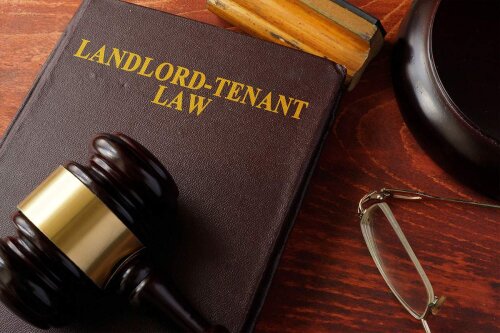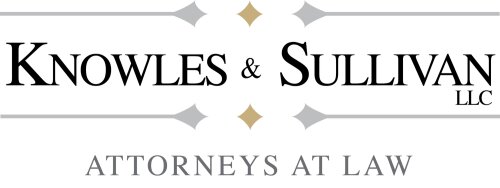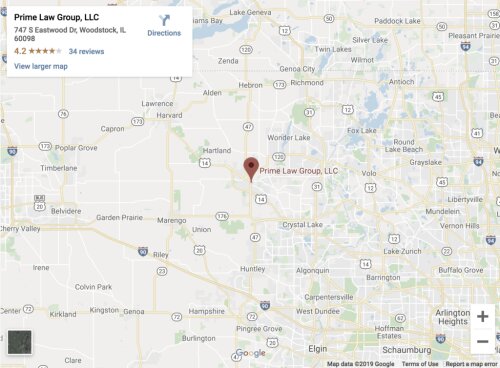Best Housing, Construction & Development Lawyers in Alabama
Share your needs with us, get contacted by law firms.
Free. Takes 2 min.
Free Guide to Hiring a Real Estate Lawyer
Or refine your search by selecting a city:
List of the best lawyers in Alabama, United States
About Housing, Construction & Development Law in Alabama, United States
Housing, construction, and development law in Alabama covers the rules, regulations, and practices that govern real estate development, the construction of residential and commercial buildings, and issues related to residential housing. This area of law touches on contract law, property rights, zoning and land use, landlord-tenant relationships, building codes, and permitting. Whether you are a homeowner, builder, contractor, developer, landlord, or tenant, understanding the legal landscape of housing and construction in Alabama is important to protect your interests and ensure compliance with state and local laws.
Why You May Need a Lawyer
Legal matters in housing, construction, and development can quickly become complex. Common situations where you may need legal help include:
- Disputes over construction contracts or project delays
- Issues with building codes or permit applications
- Problems between landlords and tenants, such as eviction or failure to maintain property
- Boundary and property line disputes
- Defective construction or safety concerns
- Disputes over zoning or land use regulations
- Foreclosure or mortgage difficulties
- Homeowners association (HOA) concerns
- Resolving liens placed by contractors or suppliers
- Negotiating purchase, sale, or lease agreements for property
An experienced attorney can help explain your rights, represent you in negotiations or court, and help resolve these issues efficiently.
Local Laws Overview
Alabama has several laws unique to housing, construction, and development. Some of the key aspects include:
- Construction Liens - Contractors and suppliers may file a lien on a property if they are not paid for their work. Alabama law sets strict requirements for notice, deadlines, and filing procedures.
- Landlord-Tenant Law - The Alabama Uniform Residential Landlord and Tenant Act governs the rights and responsibilities of landlords and tenants, including security deposits, habitability, eviction procedures, and notice requirements.
- Building Codes and Permits - Local governments generally enforce building codes in Alabama. Each city or county sets requirements that ensure safety and structural integrity, and projects often require various permits.
- Zoning and Land Use - Zoning ordinances regulate how property can be used. Local planning boards grant or deny applications for variances, rezoning, and development.
- Construction Defects - Alabama has specific statutes regarding the liability for faulty construction and required notices before legal action can be taken.
- Disclosures and Real Estate Sales - Sellers of property must disclose known material defects that could affect value or safety.
Frequently Asked Questions
What can I do if my contractor did not finish the job or did poor work?
You may have a legal claim for breach of contract or negligence. Alabama law allows property owners or developers to seek damages or require the contractor to fix defects. Preserving documentation and written communication can help your case.
Do I need a permit to build or renovate property in Alabama?
Most construction or significant renovation projects require permits from local agencies. Failing to obtain proper permits can result in fines or orders to remove unpermitted work.
How can I evict a tenant in Alabama?
Landlords must follow the procedures in the Alabama Uniform Residential Landlord and Tenant Act, which include providing written notice and, if necessary, filing for eviction through the courts.
What are my rights as a tenant if my landlord fails to make repairs?
Tenants have the right to a safe and habitable residence. If a landlord fails to make repairs affecting health or safety, you may be able to terminate the lease or seek damages after proper notice.
How do I resolve a boundary dispute with a neighbor?
Gather property surveys and title documents. A lawyer can help negotiate a resolution or represent you in court to settle the dispute based on property records and applicable law.
What disclosures are required when selling a home in Alabama?
Sellers must disclose known material defects that could affect the value or safety of the property. Failure to do so can result in legal liability.
How can I challenge a zoning decision?
You can appeal most zoning decisions to a local zoning board of adjustment. If that fails, you may be able to seek judicial review in court.
What happens if a lien is filed on my property?
A lien can cloud your property title and make it difficult to sell or refinance. You may be able to challenge the lien or negotiate removal after payment or settlement.
Are verbal agreements for construction valid in Alabama?
Written agreements are always preferable, but some verbal agreements may be enforceable. However, proving the terms and conditions without a written contract can be difficult.
Can a homeowners association enforce rules against me?
Yes, if you live in a community governed by an HOA, you are usually subject to its covenants, conditions, and restrictions, which are enforceable within legal limits.
Additional Resources
If you need more information or help, the following organizations and agencies may be useful:
- Alabama State Bar - Lawyer referral and information services
- Alabama Department of Housing and Urban Development
- Alabama Office of the Attorney General - Consumer protection
- Local city or county building departments
- Local zoning or planning boards
- Legal Services Alabama - Free or low-cost legal assistance for eligible residents
- Better Business Bureau - Information on contractors and builders
Next Steps
If you believe you need legal assistance with a housing, construction, or development matter in Alabama, start by gathering all relevant documents, such as contracts, correspondence, permits, and photographs. Write down a timeline of events and note any key concerns. Research local attorneys who specialize in real estate, construction, or landlord-tenant law. Many offer free consultations to discuss your situation. Contact your county bar association or the Alabama State Bar for referrals if needed. Acting promptly can help protect your rights and lead to the best possible outcome.
Lawzana helps you find the best lawyers and law firms in Alabama through a curated and pre-screened list of qualified legal professionals. Our platform offers rankings and detailed profiles of attorneys and law firms, allowing you to compare based on practice areas, including Housing, Construction & Development, experience, and client feedback.
Each profile includes a description of the firm's areas of practice, client reviews, team members and partners, year of establishment, spoken languages, office locations, contact information, social media presence, and any published articles or resources. Most firms on our platform speak English and are experienced in both local and international legal matters.
Get a quote from top-rated law firms in Alabama, United States — quickly, securely, and without unnecessary hassle.
Disclaimer:
The information provided on this page is for general informational purposes only and does not constitute legal advice. While we strive to ensure the accuracy and relevance of the content, legal information may change over time, and interpretations of the law can vary. You should always consult with a qualified legal professional for advice specific to your situation.
We disclaim all liability for actions taken or not taken based on the content of this page. If you believe any information is incorrect or outdated, please contact us, and we will review and update it where appropriate.
Browse housing, construction & development law firms by city in Alabama
Refine your search by selecting a city.














